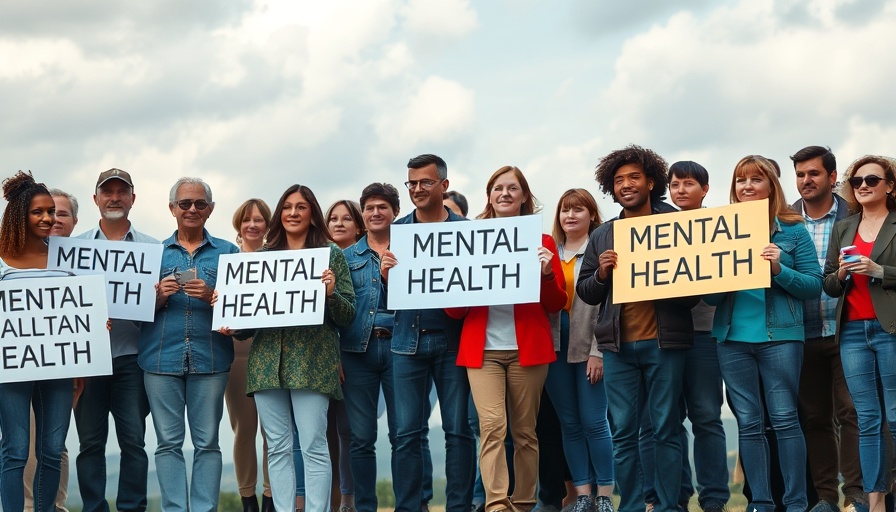
Understanding Mental Illness: Myths and Realities
Mental illness affects countless individuals and families, yet it remains shrouded in stigma and misunderstanding. Contrary to the harmful perception that mental illness equates to being 'crazy,' it is essential to recognize that these conditions are medical issues, akin to diabetes or heart disease. With 1 in 5 adults experiencing mental health challenges, society must learn what these issues truly entail. It’s not merely about having a bad day; living with anxiety or depression is a daily struggle that can lead to feelings of isolation and despair.
In 'Break the Stigma! #shorts', the discussion dives into mental health awareness, exploring key insights that sparked deeper analysis on our end.
The Burden of Silence: Why Stigma Matters
The stigma surrounding mental health issues creates a culture where many suffer in silence, fearing judgment and rejection. This detrimental silence perpetuates a cycle that can exacerbate symptoms and feelings of worthlessness. Families often bear the brunt of this burden, feeling unsure of how to support their loved ones. Breaking the stigma becomes a communal effort that fosters a supportive environment, encouraging open discussions about mental health.
The Power of Treatment: Recovery is Possible
Contrary to popular belief, treatment for mental health conditions can lead to meaningful recovery. Therapy, medication, and support groups are viable pathways for those seeking help. By acknowledging mental illness as an ongoing challenge rather than a personal failure, families can offer encouragement and support, nurturing an environment that champions healing. Many individuals leading fulfilling lives today have faced these challenges head-on, emphasizing that recovery is absolutely achievable.
Fostering Empathy: Understanding Mental Health Together
One of the most profound ways to combat mental health stigma is through empathy. By nurturing understanding and compassion, families can bridge the gap of isolation many individuals feel. Engaging in open conversations about mental health can dismantle the myths that distort perceptions, facilitating a safer space for those struggling to seek help and share their experiences without fear.
Taking the First Steps: How to Support Loved Ones
Awareness is the first step toward action. Families can empower each other by educating themselves about mental health conditions and recognizing the signs of distress among their family members. Encouraging open dialogue and showing unconditional support can make a difference. Simple gestures, like checking in regularly or voicing your willingness to listen, can be transformative.
In summary, mental health awareness transcends personal understanding; it's a community endeavor. Families stand at the forefront of this initiative, advocating for a culture of empathy and openness. By driving conversations around mental wellness, we can foster a society that embraces healing, understanding, and compassion.
Consider this an invitation to start a dialogue about mental health in your home. Take this opportunity to educate yourself and your family. By breaking the stigma together, we can create a world where everyone feels safe seeking help.
 Add Row
Add Row  Add
Add 


Write A Comment